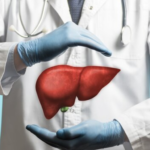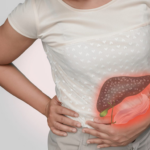
In 2015, 86% of all adults, experienced some sort of gastrointestinal (GI) issue or ailment. Sadly, it is predicted that the numbers will rise as time goes on. These include issues including constipation, rectal bleeding, bloating, heartburn, diarrhoea, indigestion, jaundice, vomiting, and stomachaches. The number of patients each year might be lowered if people were more aware of these stomach problems. The finest course of action is therefore to adhere to a few straightforward techniques to enhance digestive health. We’ll talk about several tummy-friendly foods for digestion that will unquestionably improve your digestive system.
We frequently are unsure of the best foods to eat for a healthy gut or the proper calorie intake needed to sustain normal digestion. this is because not everyone is aware of the effects that having a damaged digestive system can have on us. Because everyone’s digestive system is unique, there isn’t a single, conclusive explanation that can be given. To make your digestive system happy, we shall share some general information on several stomach-friendly foods.
What is the best food for a healthy gut?
Let’s talk a little bit about what to eat to keep your digestive system in good shape.
We’ve all had that uneasy sensation after overindulging or choosing the incorrect items to consume. Constipation and diarrhoea may ensue, which is our bodies’ way of notifying us that recent dietary or lifestyle decisions haven’t been well received. A contented stomach leads to a more happier existence overall!
Eat a variety of food
There is no one food to consume in order to maintain a healthy digestive tract. In actuality, consuming a variety of foods promotes a healthy digestive tract. For proper digestion, a variety of tummy-friendly foods are necessary because the stomach houses a variety of germs and good bacteria. A diverse, nutritious diet is a fantastic method to keep your stomach happy because following a very restricted diet can cause your gut to lack crucial nutrients.
- Fibre
First off, eating a lot of fibre is the greatest approach to prevent constipation. Second, by providing the good bacteria in our stomach with fibre, we are promoting their growth. Our gut already includes healthy bacteria. As a result, fibres are crucial to our digestion. It should be noted that 30g of fibre per day is the recommended consumption. Fibre is present in foods including whole grain bread, oats, brown rice, lentils, and cereals.
The following produce items are particularly high in fibre: artichokes, peas, broccoli, raspberries and blackberries, avocados, pears, and spinach.
- Fluids
Because fibre absorbs water like a sponge, it’s crucial to drink plenty of fluids to prevent constipation.
Maintaining a healthy level of hydration promotes soft poop and facilitates easy digestion of food. Aim for six to eight glasses each day, including water and beverages without added sugar.
Avoid excessive caffeine intake, which can increase stomach acid and induce acid reflux (heartburn). If you are prone to stomach issues, stay to still drinks as fizzy drinks might induce bloating.
- Ginger
Ginger root is a vegetable-only root that you should stock in your pantry. Ginger is frequently used by pregnant women to treat morning sickness, and it also works to cure nausea in general.
Ginger can ease the discomfort caused by blocked wind because it breaks down food, which promotes digestion. It is a fantastic approach to help treat constipation naturally and gently.
- Probiotics
Live microorganisms called probiotics can help your heart and digestive system function better. Additionally, it lessens depression. Although we already have probiotics in our guts naturally, it doesn’t hurt to supplement them to support the good bacteria. True, not all bacteria are harmful. They significantly improve intestinal health. Stress and antibiotic use are just two examples of the many things that can alter the balance of bacteria in our gut. Taking pills or consuming live, probiotic-rich yoghurt can be beneficial.
- Fennel for good digestion
Did you know fennel is healthy for your digestive system as well as producing a pleasant flavour when cooked? Fennel is well known for its anti-inflammatory properties, which also make it useful for preventing colon cancer and easing constipation. Its volatile oils aid in proper digestion in our stomachs. This can help with more conspicuous digestive problems such bloating, constipation, diarrhoea, and flatulence. We advise drinking some fennel tea. Delicious and nutritious! a wonderful combo.
General suggestions
First, eat on schedule
We’re all constantly pressed for time, whether it’s for job or housework! We realize that they are all vital. However, our eating pattern is also. To keep your digestion in good shape, establish an appropriate meal routine for yourself and adhere to it consistently. Never forget to try to consume your meal while seated and stress-free (and not in a rush).
Second, cut down on fat
Too much fat, such as that found in fried foods, fast food, and dairy products, is difficult for your body to digest and can result in heartburn and stomach discomfort. Therefore, it’s crucial to limit your intake of fatty foods.
Lastly, avoid trigger foods
Certain foods may cause gastrointestinal pain. If you have digestive issues, try maintaining a food journal for a month, documenting what you eat and do as well as noting when symptoms appear. Try to find any connections between diet and digestive issues. If certain foods seem to be the source of your issues, consider eliminating them from your diet to see if that helps. Try to listen to your stomach’s cues and steer clear of “problem” foods.
These were some advice that will assist you maintain your digestive health. You have now effectively attained awareness, the first step toward having a healthy digestive system. It is now time to move on to the implementation phase of the second step. Starting right now, implement




